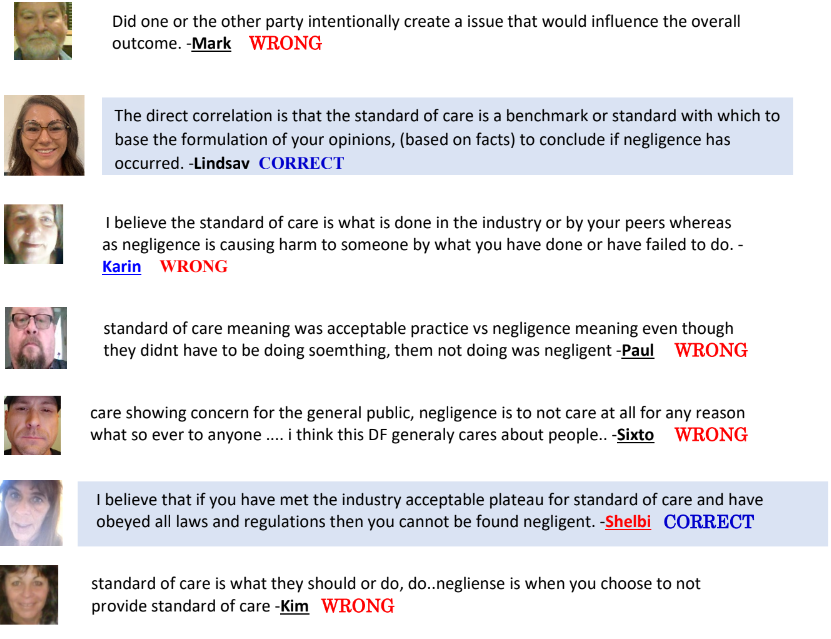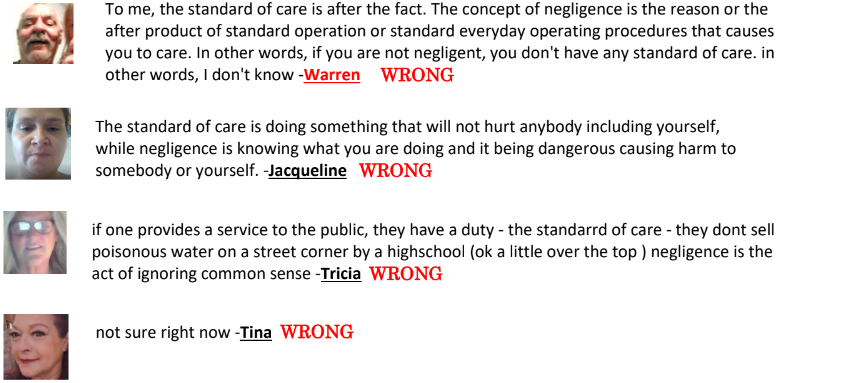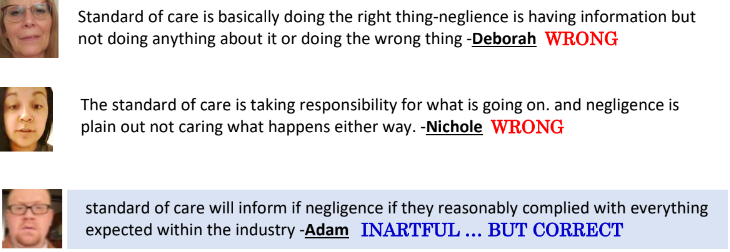 What is the weirdest fact that you have looked up lately? Perhaps a random Guinness World Record? The world today is exploding with instant information. The ability to do an internet search of anything and come up with millions of results in less than a second is truly amazing. However, jurors are kind of handicapped because they aren’t supposed to do any research. They come in with what they know and don’t know. A term that decides many verdicts is negligence.
What is the weirdest fact that you have looked up lately? Perhaps a random Guinness World Record? The world today is exploding with instant information. The ability to do an internet search of anything and come up with millions of results in less than a second is truly amazing. However, jurors are kind of handicapped because they aren’t supposed to do any research. They come in with what they know and don’t know. A term that decides many verdicts is negligence.
Assuming a juror knows what negligence means is just plain negligent!
The following question which was posed to a private jury will show you that negligence is often neglected in lawyers' arguments when in front of a jury. This article will offer some golden nuggets for earning the leadership of a jury for your next case. What can you do to bridge this gap? The expertise of First Court offers the following insights gleaned over the decades as the leader in jury research.
First a quiz… what percentage of jurors do you think can accurately define what negligence is?
- 0-25%
- 25-50%
- 50-75%
- 75-100%
In a recent private trial 16 jurors were asked the following question:
"The lawyers have been talking all trial long about “the standard of care” and “negligence.” In your own words, what is the connection between the standard of care and negligence? How do they relate to each other? (it is ok to say I don't know)”
Their Answers are below:




Of the 16 responses above we can see that this lawyer did a horrendous job communicating and defining “negligence” and “standard of care.” Can you win your case for negligence if the jurors can’t even define it?!?
Save the following 3 suggestions for your next jury trial:
-
Learn to recognize your use of legalese. Rehearse your case in front of mock juries and ask “obvious” questions like the one above.
-
Never assume the jurors understand your legalese. Do they have the same understanding of the term as you?
-
Keep paraphrasing what your key legal terms mean throughout the trial. Repeat, rephrase, recall.
If you win a verdict with jurors ignorant of your key concepts, you are not good. Just lucky!
Once you have established a common understanding of your key terms, the next step is to take leadership of the jury. We’ll talk about tips to earn the right to jury leadership in our next blog.


Leave a Comment